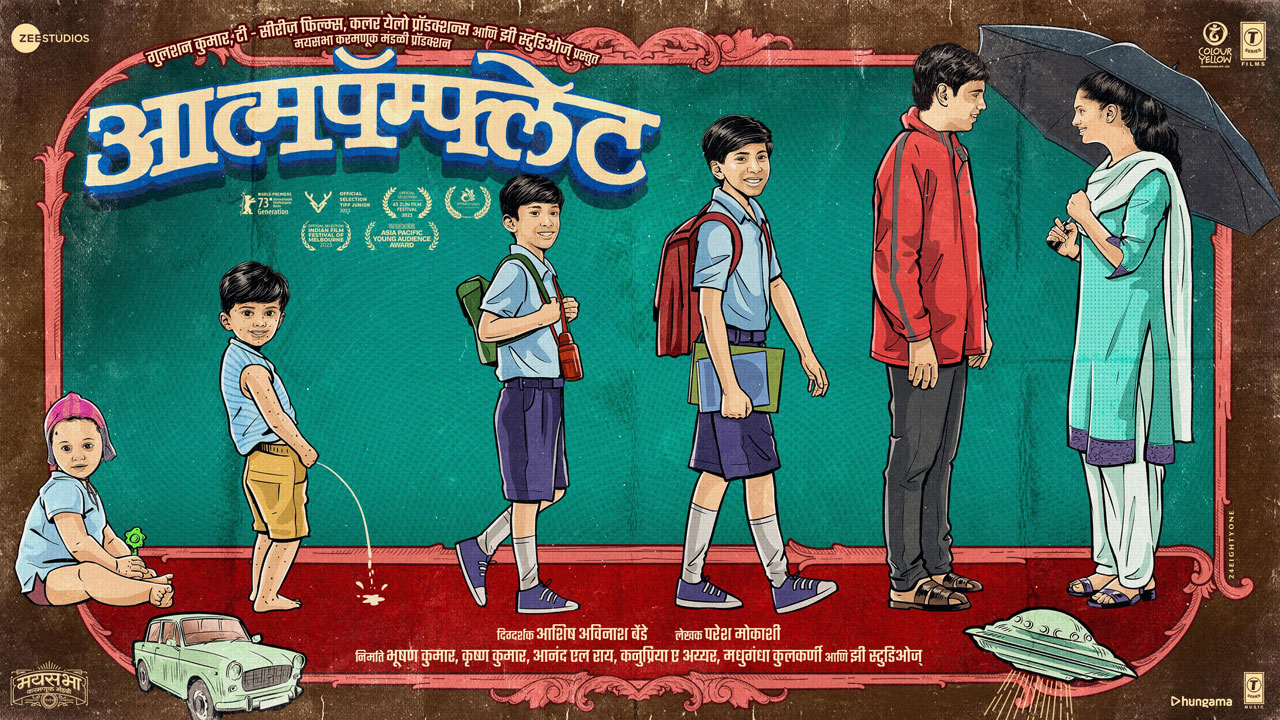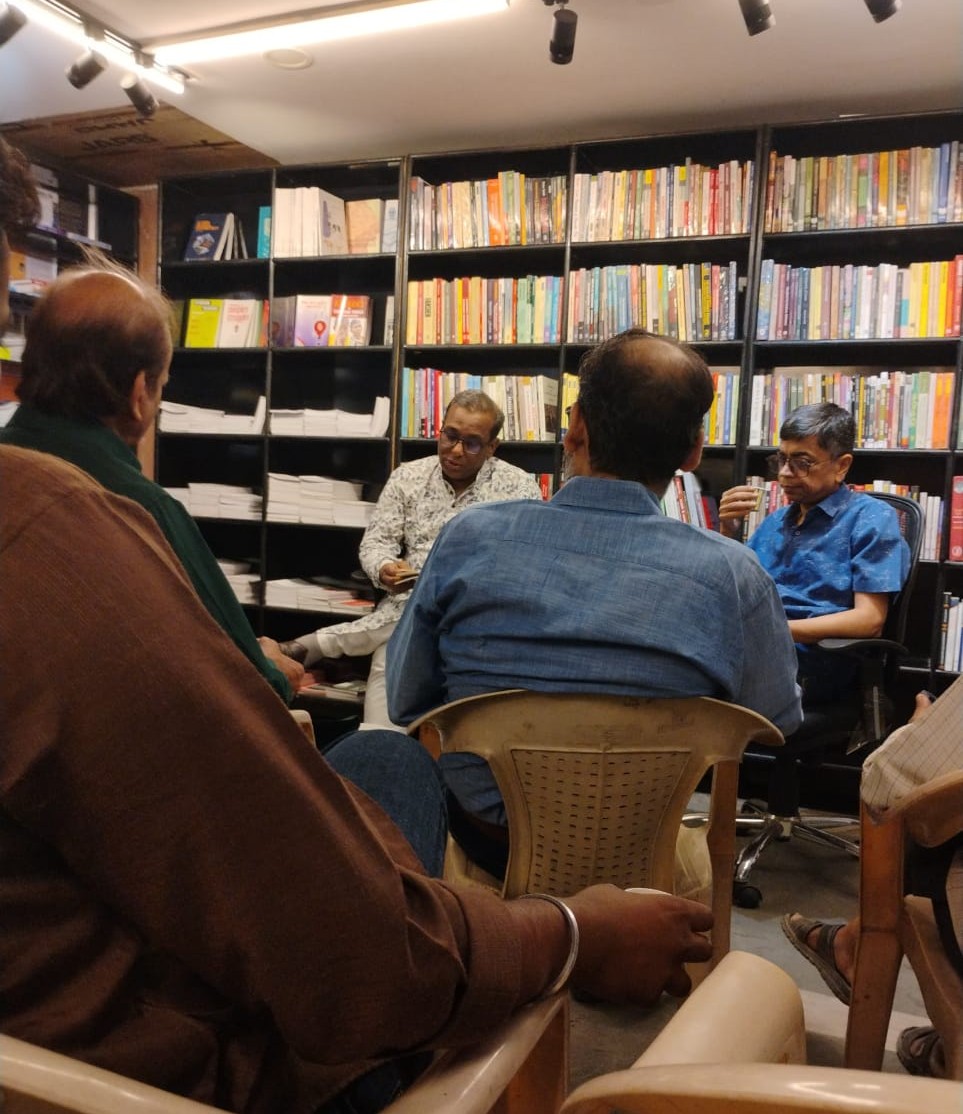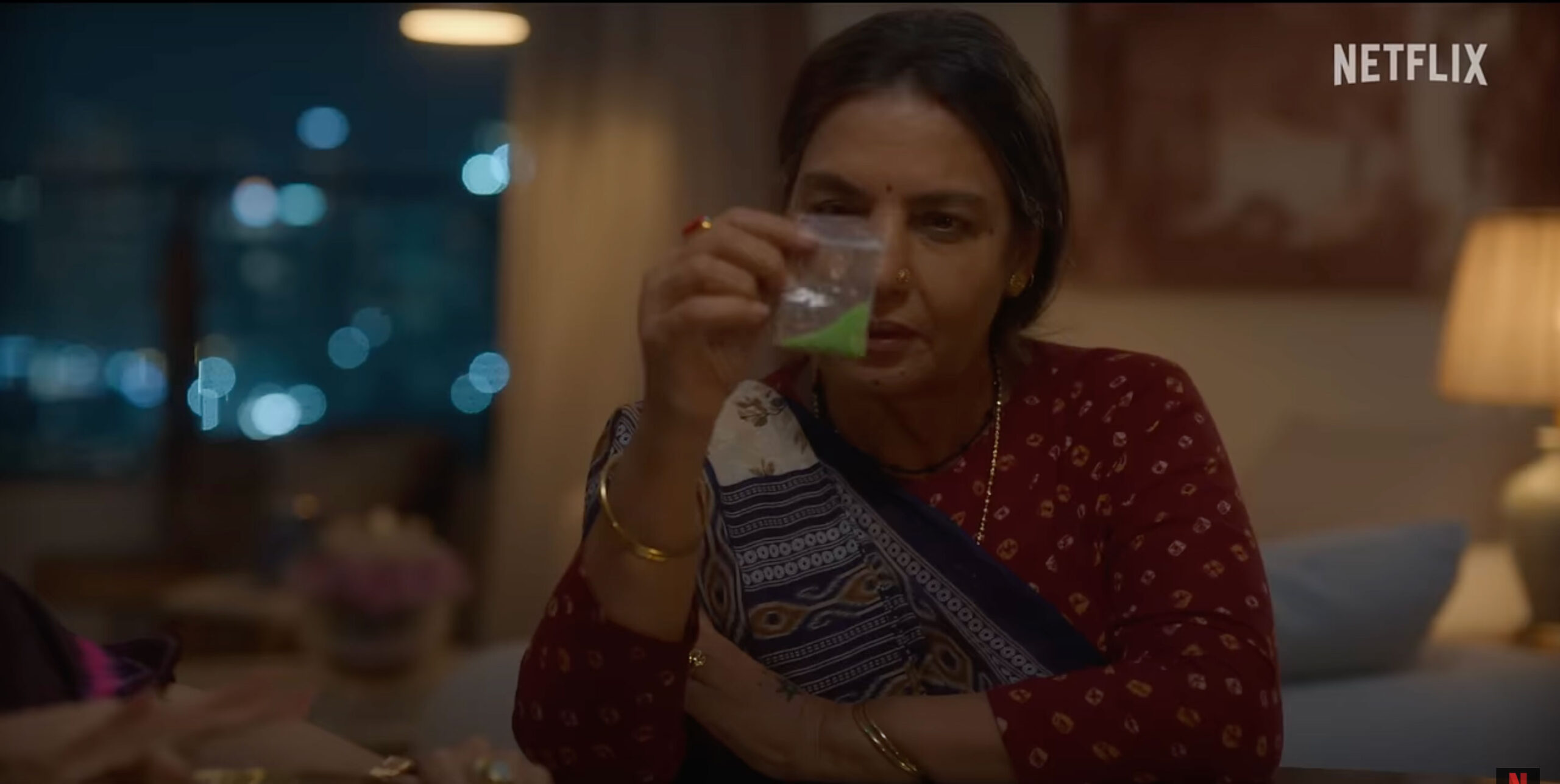Released in 2022, Aamir Khan’s “Lal Singh Chaddha” was the official remake of Hollywood classic “Forrest Gump”, but it had nothing in common with “Forrest Gump”. It was a timid film. In trying to steer clear of controversial themes, the director ended up making a very ordinary film. In contrast, the 2023 Marathi film “Aatmapamphlet”, while making no such claims, is actually a real Indian adaptation of Forrest Gump. The film was screened at the 73rd Berlin Film Festival.
“Aatmapamphlet” is a labour of love. It lets the audience celebrate love, friendship and innocence. The film was recently released on OTT platform ZEE5 with English subtitles. The film has been produced jointly by Zee Studios, Anand L. Rai and Bhushan Kumar. Paresh Mokashi, whose latest Marathi film “Vaalvi” (2023) had won critical acclaim, wrote the script and the film is the directorial debut of Ashish Bende. Interestingly, Ashish Bende is also the name of the central character of the film.
Om Bendkhale’s performance as Ashish, a teen, is excellent. The child artistes, who have played his band of friends, have also done justice to their roles. Other actors play roles like Ashish’s parents, grandparents, teacher and neighbours also impress. It was a pleasure to see veteran actor Deepak Shirke on the screen after a long gap. He is in the role of Ashish’s grandfather.
Fearless and innocent storytelling
It would not be an exaggeration to say that very few Indian films on sociopolitical issues have managed to resist the temptation of sermonizing. Fewer still have dealt with such issues in a satirical manner. “Aatmapamphlet” is one such film. It is among the few films that comment on Indian society from a child’s perspective. Among the recent releases, it is the most powerful satirical film dealing with a sociopolitical issue.

The film’s chief protagonist, Ashish Bende, is a teenaged Dalit boy who falls in love with his Brahmin classmate Srishti. This does not come in the way of his friendship with peers who hail from different castes and communities (Muslim, Maratha, Brahmin and Kunbi).
The film is set in the 1980s and the 1990s – decades that witnessed transformative changes in India. While telling the story of Ashish’s one-sided love affair, the film also minutely examines the changes that were taking place at the time and the events that triggered them. The film chronicles the time period from Ashish’s childhood to adolescence. The key turns in Ashish’s life coincide with the key turns in India’s polity and society. They include Indira Gandhi’s assassination, announcement of the decision to implement the Mandal Commission report and demolition of the Babri Masjid. What could have been a run-of-the-mill story of teenage crush, turns interesting as we get to know about the social backgrounds of the different characters.
What makes this film special
At the very outset, the film brands itself as a love story. But that is a half truth. The film’s screenplay is simple and light. It is a black comedy that presents serious social issues in a humorous, balanced manner. But it doesn’t pull punches. It beautifully weaves a love story with sociopolitical issues. It strikes a fine balance between the two, while ensuring that dealing with the twin topics doesn’t disrupt the flow of the story. Unity in diversity is the basic narrative of the film, which, the friends of Ashish belonging to different faiths and castes, assert continually.
Another aspect that sets “Aatmapamphlet” apart is its universality. Discrimination is present in every society in varying forms and intensity. The film’s story unfolds in small-town Maharashtra but the wider human values it espouses are universal. And what is more, the film never sermonizes.
Another specialty of the film is that it tells the story from the perspective of children. How children view the world is very different from how adults see it. The film exposes society’s attempts to push retrograde and reactionary ideas down the throat of children, which, in turn, sows the seeds of discrimination in their minds. As children are tutored in the beliefs of their caste or religion, an unspoken chasm appears before close friends belonging to different communities.
The film portrays the thought process of children imaginatively, never losing sight of their innocence as well as their reasoning faculty. The film seeks to convey that despite all sorts of sociopolitical differences being injected into their minds, the children have a better understanding of love, friendship and brotherhood than grownups, and despite all sorts of roadblocks, they manage to find a way out.
Portrayal of caste hierarchy
The film presents the caste hierarchy that prevails in Indian society in an entirely new light. Its chief protagonist is a Dalit but the film allows the audience to see him as free from the shackles of caste and his Dalit identity. He is not presented just as a hero, not a Dalit hero. The film is a humorous take on caste-based discrimination and undertakes this risky endeavour with remarkable success, without diluting the seriousness of the issue.
The cinematography also places the film in a different class. Voiceovers are a constant companion of the audience. In fact, the first 25 minutes of the film have no dialogues at all and the story moves ahead only with the help of voiceovers.
In conclusion, this 95-minute film is one of the most relevant movies in recent times. It tries to draw us out from our self-created “we versus you” confinements. It introduces us to an India that we, at present, can only dream of, but which we need today and now.
(Translated from the original Hindi by Amrish Herdenia)
Forward Press also publishes books on Bahujan issues. Forward Press Books sheds light on the widespread problems as well as the finer aspects of Bahujan (Dalit, OBC, Adivasi, Nomadic, Pasmanda) society, culture, literature and politics. Contact us for a list of FP Books’ titles and to order. Mobile: +917827427311, Email: info@forwardmagazine.in)





